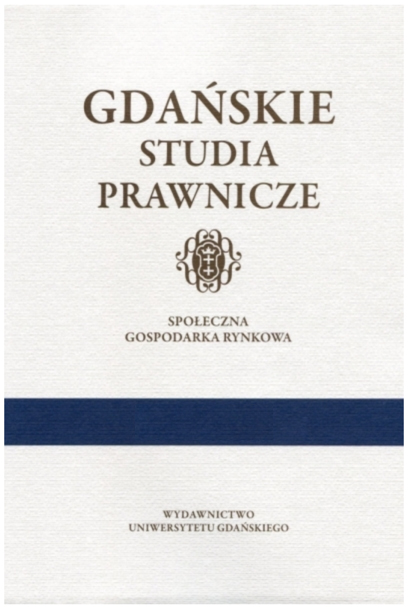Regulaminy Volkstagu (Zgromadzenia Ludowego) wersalskiego Wolnego Miasta Gdańska
Standing orders of the Volkstag (people’s assembly) of the Versailles free city of Danzig
Author(s): Tadeusz MaciejewskiSubject(s): Constitutional Law, Government/Political systems, Electoral systems, Interwar Period (1920 - 1939)
Published by: Wydawnictwo Uniwersytetu Gdańskiego
Keywords: constitution of free city of Danzig; Danzig; constitution; Nazi; 1920; law;
Summary/Abstract: The Constitution of the Free City of Danzig adopted on 30 June 1922 devoted the second chapter, including 19 articles (6-24), to the Volkstag (People’s Assembly), which served as a legislative power. According to art. 11 of the Constitution, the Assembly was allowed to issue its own standing orders specifically regulating its organization and the mode of operation. The Standing Orders of the Volkstag, which was passed in 1923 and officially announced in 1924, consisted of 94 paragraphs organized in 14 chapters. It regulated, among others, issues related to: participation in the deputies’ deliberations, the Bureau, political fractions, internal committees, the presentation of draft laws and their adoption, questions and interpellations, petitions or the conduct of meetings. The first amendment of the Standing Orders was made in 1925 but the changes were not significant. On 20 September 1930 a substantial revision of the Constitution was adopted, which required changes of the Volkstag Standing Orders. This was done in April 1935 after the takeover of power by the National - Socialist Party (NSDAP). The amendments to the Standing Orders had a very important character. Their main objective was to strengthen the power of the Nazi party. As a result, the legislative competences of Volkstag were greatly reduced in favor of the Senate, which was an executive power.
Journal: Gdańskie Studia Prawnicze
- Issue Year: 2015
- Issue No: XXXIII
- Page Range: 249-263
- Page Count: 15
- Language: Polish

